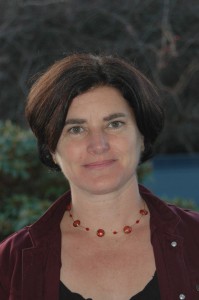On Apr 7, Leila Harris will be giving a talk at IRES seminar series, from 12:30 to 1:30 in the Aquatic Ecosystems Research Lab Building, room 120. Her talk is titled “Assessing States, Differentiating Citizens: Perspectives on water services and evolving state-society relations in Accra, Ghana and Cape Town, South Africa”. The lecture is available online HERE.
Abstract: This talk considers everyday assessments of state capacity, service quality and notions of citizen responsibility related to water access and governance across several underserved areas of Cape Town, South Africa and Accra, Ghana. Conceptually and methodologically, I argue that everyday citizen perspectives are key for a critical perspective on state building governance processes. Theoretically, the work speaks to broader interests related to differentiated and uneven services and infrastructures as key to both perceptions regarding the role or legitimacy of the state, as well as individuals’ own senses of responsibility as citizens. The analysis reveals a host of interesting insights related to these connections. Among them, that water quality and satisfaction are linked to trust in government in South Africa, but not to the same degree for Ghana. As well, although a number of indicators of water access and quality appear to be very good in South Africa, there is nonetheless deep contestation related to water services, ongoing senses of dis-enfranchisement, and an unequivocal sense that the government should be doing more. For Ghana, we see a complex portrait where access to and quality of water is important for people’s daily lives, but is perhaps less strongly connected to senses of government responsibility and legitimacy. These results cannot be read at face value, as derivative of service quality, but also must be read against other key features of history and context (most notably, the strong focus on equitable service delivery in the context of post-Apartheid South Africa). In addition to analysis of these questions based of a (2012) survey, the presentation will also address other insights and possibilities made possible through our use of participatory video to enrich the discussion. While emphasizing different themes, the arts-based qualitative aspects of the project highlight other important issues related to everyday lived dimensions of water access and quality, while also exploring insights related to citizen subjectivities, and possibilities for participatory water governance.
This seminar will be filmed.
